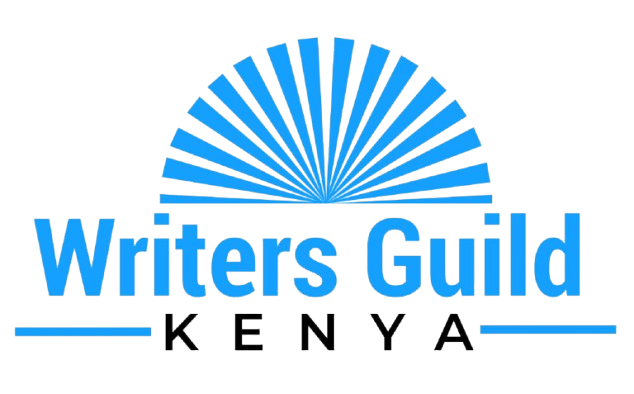By Gabriel Dinda
Every day, we receive so many questions regarding publishing. I am therefore encouraged to write a brief guide to help you when you think of publishing a book.
Publishing is the whole process of preparing a manuscript to a book. A manuscript is the draft of a book. The publishing process includes Writing, Editing, Proofreading, design and layout, and printing. This whole process is what is called Publishing. Printing is not synonymous with publishing.
There are two main avenues to Publishing; Traditional/Conventional and Self-publishing. Conventional publishing is where you prepare your manuscript and then give it to a Publisher who takes it through the process of publishing at their cost. In this case, you don’t pay for any of the services. All that is required after your manuscript has been accepted for publication is to sign a contract. In this case, just as you don’t pay for anything, you don’t own every proceed from the book. You are only entitled to a royalty earned from the sale of your book. Most publishers locally, give a royalty of about 10% broken down in this manner; 10%-Author royalty, 35%-Printing costs, 20%-Service cost, 35%-Bookshop commission. In short, if your book costs Ksh.100, you will only be entitled to Ksh.10 per unit of your book sold, paid after a period (mostly a year)
This avenue of publishing is very ideal for academic books and books which require specialized skills to publish. The good thing with using conventional publishing is that you tap into the network build by the publishers’ overtime. If you use this route, it will be very exciting to have your book released and soon after, you will find it in bookshops and schools across the country. It literally takes off the burden of marketing or distribution from you. Though it takes the burden, it doesn’t exempt you completely from marketing. A partnership with you and the publisher help reach more people. This avenue gives you the space to write more since your work is just that-write.
The challenge with this avenue is largely on getting your manuscript accepted by the publisher and the time it takes to publish it. There are numerous people writing on a daily basis and with little capacity, the publishers do not respond as quickly as the authors may want. Many authors have a record of being rejected by publishers or not getting response at all from them. Other problems could relate to the authors overlooking the needs of the publishers hence sending manuscripts indiscriminately or poorly done manuscripts which irritate the publisher. The publishers under this category are largely business organizations hence look at every manuscript from the point of market viability (can it sell?). Because of this question, most publishers here only focus on publishing school books whose sales are guaranteed. What other problems have you experienced with conventional publishing?
Self-publishing on the other end is where you pay for all the services above (writing, editing, proofreading, design and layout and printing). Obviously, once you pay for these services, the ownership of the book is fully yours. You get all the benefits and take all responsibility for your book. The author gets 100% of what they earn from the book (at least from the face of it). The author, therefore, has to coordinate the marketing and distribution and any other need that the book comes with. This avenue of publishing gives the author the freedom to publish without much restrictions characterized by conventional publishers. Therein lies the first challenge-poor quality. It is like building your own house yet you are not a professional. In most cases, the house will fall on you and kill you. You will always tend to try to reduce costs, look for cheaper services and at the end of it, end up with poor quality which can kill your writing career or enthusiasm. Another challenge is the loss of self. After publishing, you will have to be worried about all that your book needs e.g marketing, distribution hence may lose yourself in the process and forget writing.
There are a number of organizations that now come in to bridge this gap. Like, Writers Guild –Kenya who offers the Self-publishing services professionally to the authors to try to ensure quality publishing yet gives the authors a chance and freedom to publish. Different organizations have different procedures to achieving this, but for Writers Guild Kenya, we have the following procedure:
1.Evaluation: Writers Guild Kenya(WGK) receives the manuscript (or the first few sections) and does an evaluation to determine readiness for publishing. Before this is done, the author and WGK signs a Non-Disclosure Agreement(NDA). There is a comprehensive report given for every evaluated work. This service is paid for separately from the publishing process.
- Contract: Once evaluated and established to be ready for Publishing, WGK and the author signs a Self-Publishing Contract (containing the terms, costs and any other details)
- Strategy: The timelines are set and agreed on by both parties. The parties also agree on any special details required to accomplish the work.
- 4. Perspectives: Editorial work sets in (Editing, Proofreading, Design and Layout, Approval and Printing).
- Evidence: The book is handed over to the author/client.
- Presentation: Launch or Distribution arrangements made (if part of the contract).
- Inspiration: Your book is now ready to influence the world.
The greatest decision which any author has to make is the route to choose to publish. While you are free to choose the route, you are not free to choose the consequences that come with it. In my view, the greatest marketing strategy for any book is quality. If you take your time, do the best work (in terms of content) and ensure that you do everything right, the rest will be easier. This perhaps is the best way out. Like John Mwazemba, General Manager, Oxford University Press(EA) said, for self-published authors, you can ignore the publisher, but never ignore the publishing process.
Keep writing until your ink runs dry. You may reach out to us through the email provided should you need further guidance in this area.
Gabriel Dinda is the founder of Writers Guild Kenya. Email-write@writersguild.co.ke






9 thoughts on “A,B,C of Publishing your book.”
Very well explained!
Perfect, great
Thank you for sharing.
Very inspiring
Thanks for highlighting the most important aspect of writing and publishing a good book….. And yes even if the inks dry. Mimi nitanunua ingine?.
Thanks for sharing
Thanks for this insight
This is quite helpful in ascertaining expectations.
You’ve got what I needed
I have done a book which requires publication.
You can revert for more details